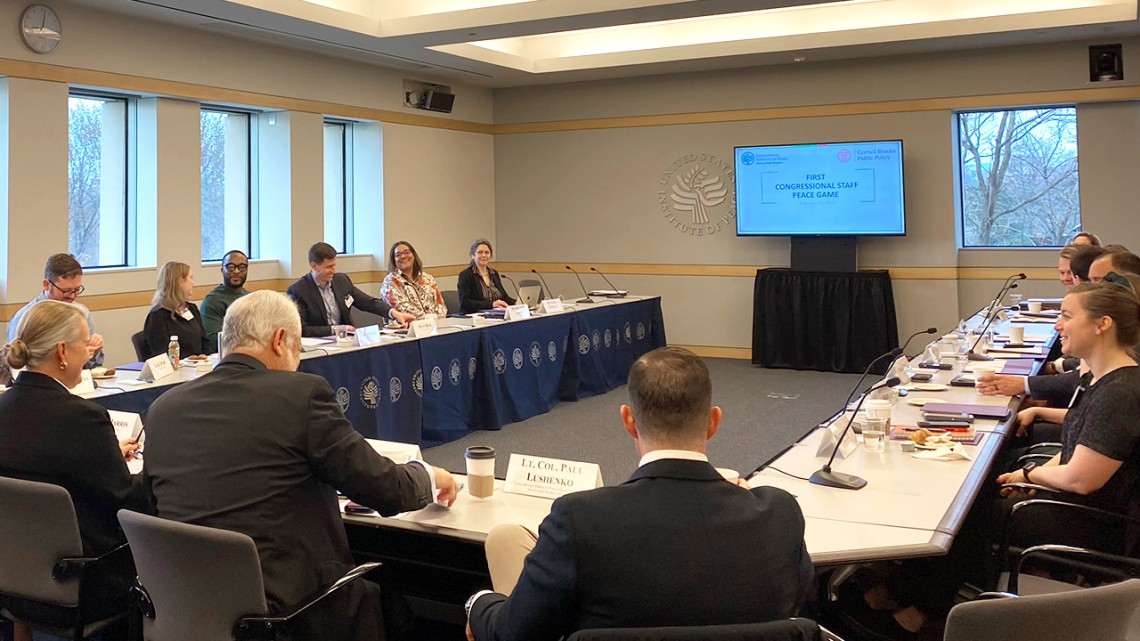
Participants in the Peace Games consider a nonviolent response to a simulated international crisis. Congressional staff members were invited to the event, sponsored by Institute of Politics and Global Affairs at the Cornell Jeb E. Brooks School of Public Policy and by the U.S. Institute of Peace.
News directly from Cornell's colleges and centers
Peace Games underscore options to war
By Jim Hanchett
A unique Cornell University-sponsored event in Washington, D.C. brought together congressional staff to search for nonviolent solutions to a simulated clash between superpowers.
The Peace Games were organized by the Cornell Institute of Politics and Global Affairs (IOPGA) in the Cornell Jeb E. Brooks School of Public Policy and the United States Institute of Peace, with support from the Carnegie Corporation.
The Games are an annual event for members of Congress but this year the organizers offered a version limited to about two dozen congressional staff.
IOPGA director Steve Israel, a former member of Congress and a professor of practice in the Department of Government, College of Arts and Sciences, moderated the Feb. 23 event, noting the critical role that staff members play in advising lawmakers.
With U.S. adversaries growing stronger and more belligerent, Israel said staff members need to understand the full range of peacemaking tools: “Soft power, deterrence, diplomacy. That soft power is the best investment we have because it’s much more expensive when you must resort to hard power to protect your interests.”
While the details of the simulated conflict are kept confidential, the basic plot sounds entirely plausible: a tense dispute between two world powers rooted in a humanitarian crisis.
Seated facing each other at a horseshoe-shaped table, the participants talked through peaceful solutions. The conversation was guided by U.S. Army Lt. Commander Paul Lushenko, a Cornell doctoral student in the field on international relations.
The event will be repeated later this year exclusively for members of Congress. Each Peace Games is decidedly non-partisan and Israel said that is crucial to their effectiveness. “It’s more important than ever that the United States lead, and lead based on bipartisanship. Democrats and Republicans must stand together and stand for the promotion of democracy, peace, security and stability,” he said.
Jim Hanchett is assistant dean of communications for the Cornell Jeb E. Brooks School of Public Policy.
Media Contact
Get Cornell news delivered right to your inbox.
Subscribe
